Key QA & Game Testing Takeaways from Paris Games Week 2025
by Yuliia Starostenko | November 17, 2025 1:11 pm
Paris Games Week 2025 felt like a place where games naturally opened the door to conversation. Screens, demo stations, and curious visitors filled the hall, and developers guided players through their builds as gameplay unfolded in real time. The atmosphere was energetic and sincere, making it easy for people to start talking about their projects and ideas.
The compact layout kept everyone close to the action. Demo areas and small resting spots created a continuous flow of interaction, where a simple pause at a screen often led to a meaningful exchange. People asked questions, shared thoughts, and continued discussions even as gameplay kept running in the background.
Event Overview
Paris Games Week brought together a diverse range of game studios and teams, showcasing projects across various platforms and genres. The venue was divided into vibrant zones with console areas, PC setups, mobile demos, and striking themed stands that drew attention from across the hall. Visitors jumped into gameplay immediately, testing builds, exploring mechanics, and asking questions — the space naturally combined hands-on play with meaningful conversations.
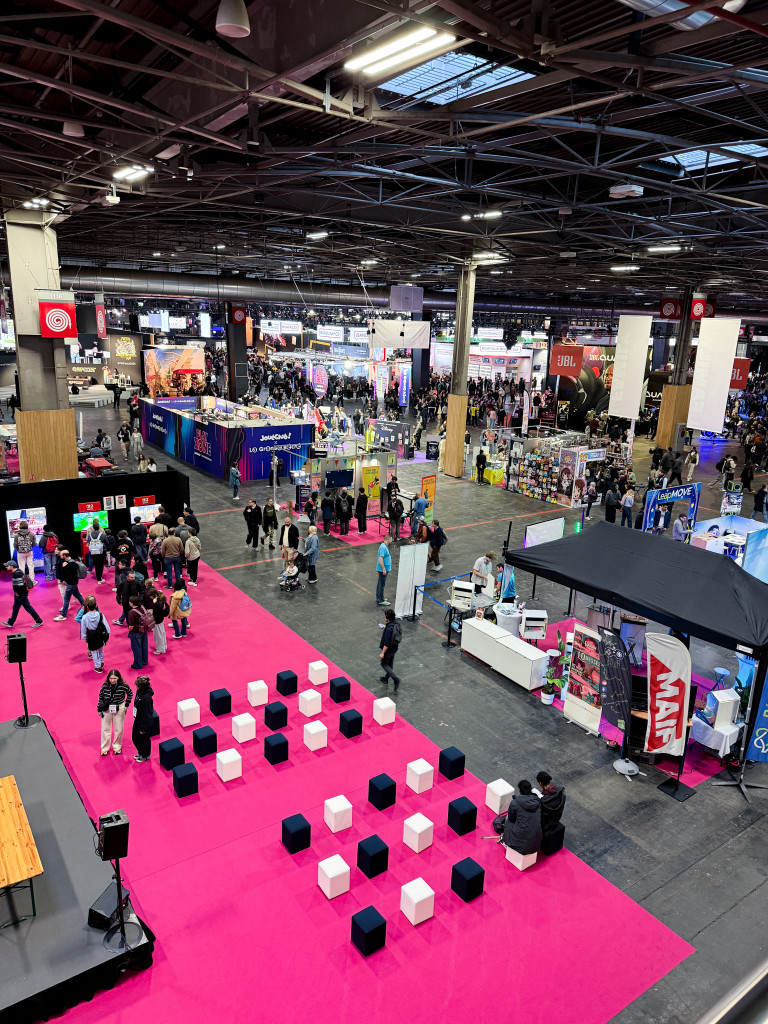
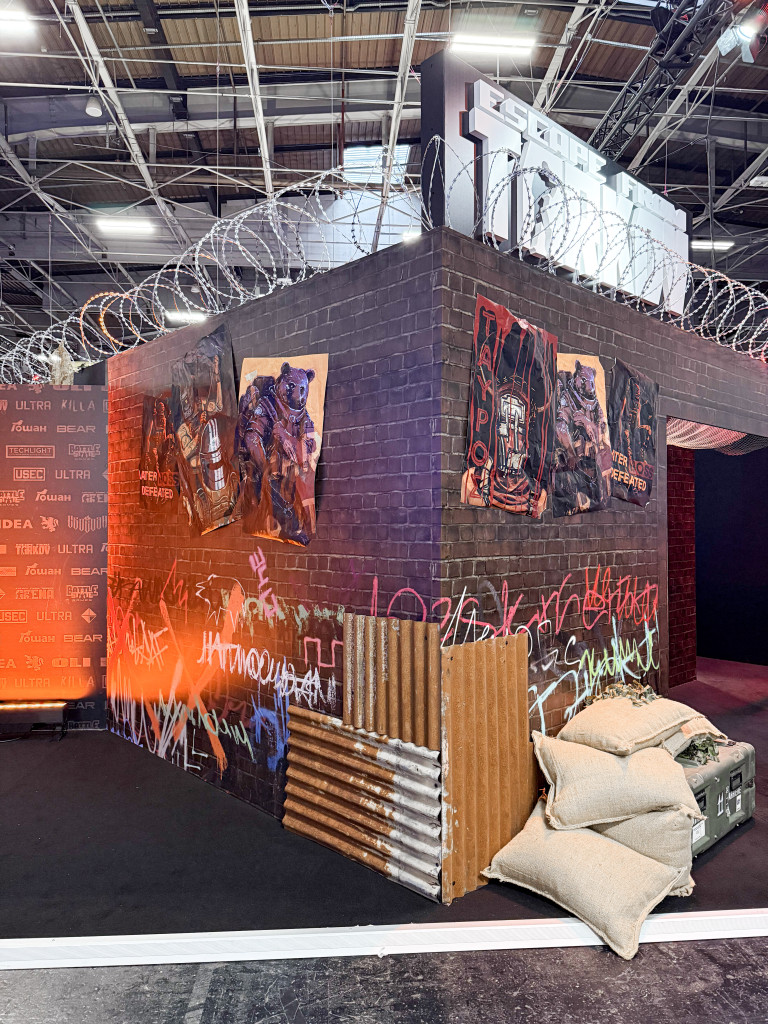
Side events were happening throughout the week, yet the main show floor was where most connections formed. Conversations flowed continuously — from a quick comment about gameplay to deeper discussions about vision, pacing, or mechanics. Our colleague spent the entire event engaged in both scheduled and spontaneous dialogues, moving seamlessly from one conversation to the next without ever leaving the flow of the hall.
Our Representative at PGW
We attended Paris Games Week to meet development teams and our clients, understand their challenges, and explore collaboration opportunities in game testing.
Pavlina Svarychevska[1] — Product Growth Advisor
Advises on product strategy and drives growth through QA expertise.
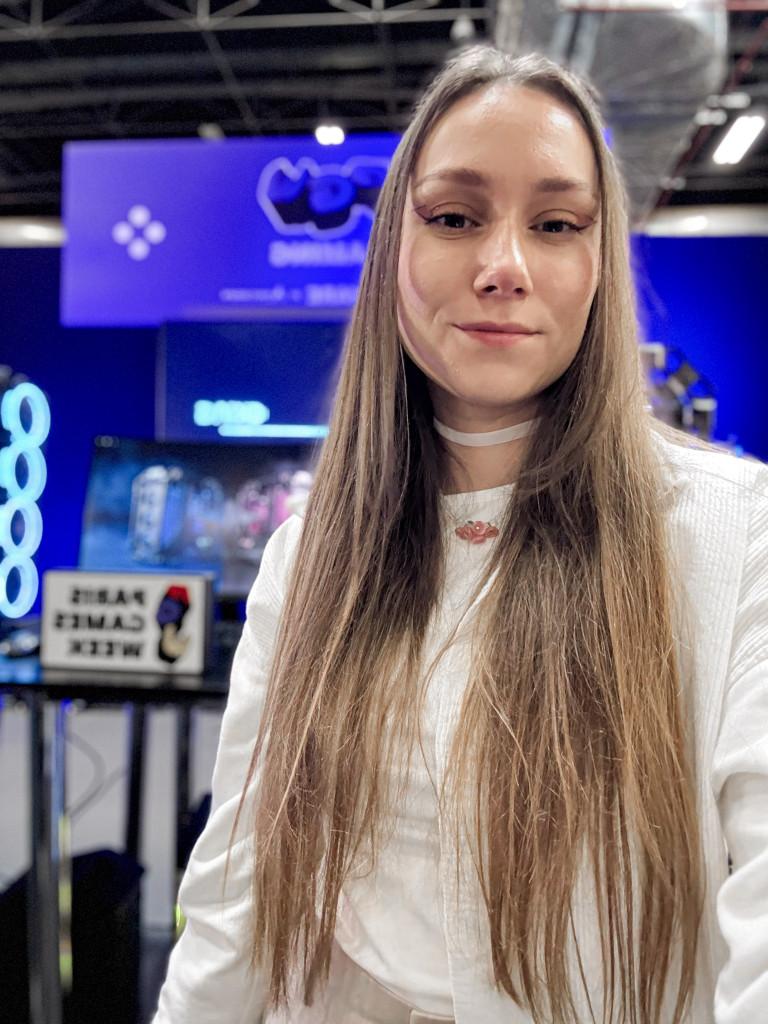
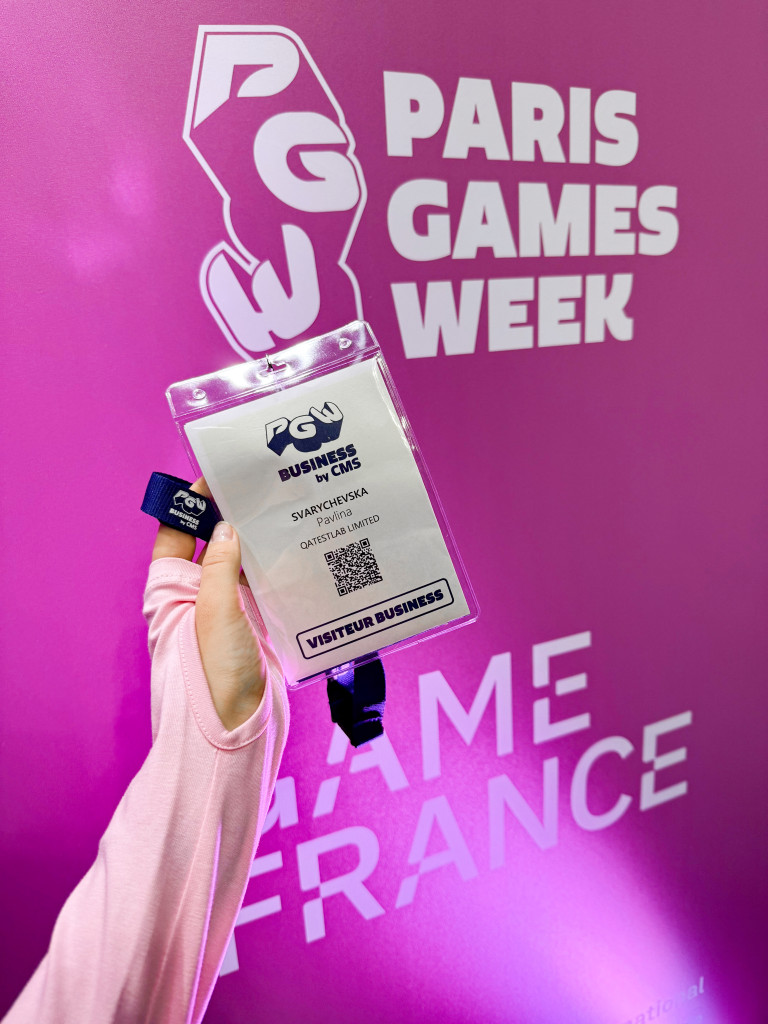
From Conversation to Collaboration
Open communication became the natural rhythm of the event. Discussions began at demo stations, continued while someone adjusted a build, and often carried into the casual areas of the venue. People were genuinely curious about each other’s projects and willing to share what inspired them, what decisions shaped their gameplay, and what direction they wanted their ideas to grow in.
Some of the interactions were spontaneous exchanges that opened the door to future collaboration. A brief conversation near a controller could evolve into a shared brainstorming session or an invitation to continue the dialogue after the event. This openness turned communication into a starting point for collaboration, making every connection feel meaningful and intentional.
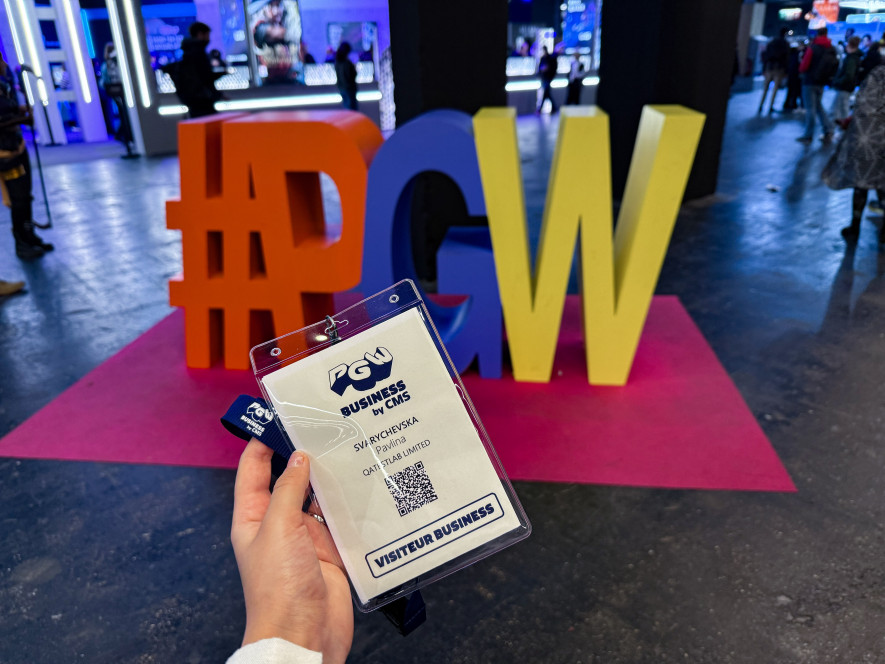
From Demos to Testing: What Teams Discuss at PGW
At Paris Games Week, we initiated many of the conversations around game readiness and testing strategy. When publishers and teams showcased their builds, we inquired about their QA stages, how they validate quality across platforms, and the challenges they face before release. This opened a deeper dialogue about structured QA — from early testing of core mechanics to final polishing before launch. We shared how systematic testing helps detect risks earlier, prevents blockers from reaching production, and keeps game stability predictable.
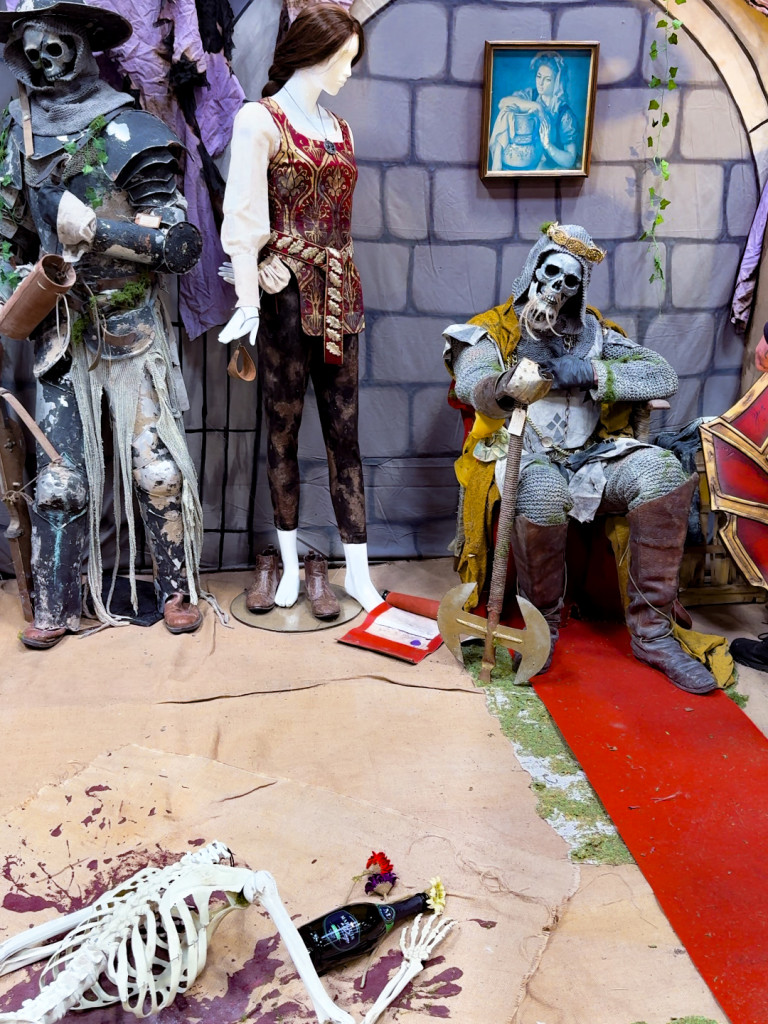

We also spent a significant amount of time reviewing early demos directly on the show floor. During gameplay, we discussed how they gather feedback, what they test internally, and where external QA could bring clarity. Many developers were testing directly on the show floor, watching live reactions from players in real-time. We helped them turn those observations into next steps — highlighting when community feedback becomes valuable insight, and when professional testing saves time and protects the game’s vision. These conversations helped studios understand how intentional quality work improves decision-making, planning, and overall confidence before release.
Cross-Platform Game Testing Insights: Mobile, PC, Console, VR
Alongside strategic discussions, we spent time at gameplay stations where studios were showing mobile, PC, console, and VR builds. These platforms reveal technical nuances of quality: performance on different hardware, input responsiveness, frame stability, and how UI behaves under load. Seeing the builds running live — outside of internal lab conditions — helped surface issues that only appear on real devices, varied setups, or immersive environments like VR.
These moments provided us with an opportunity to discuss platform-specific risks, such as device variability in mobile testing, network sensitivity on PC, optimization requirements for console builds, and interaction accuracy or motion stability challenges in VR. Instead of discussing testing in theory, we focused on what matters technically for multiplatform releases and what must be validated before the game reaches a broader audience.
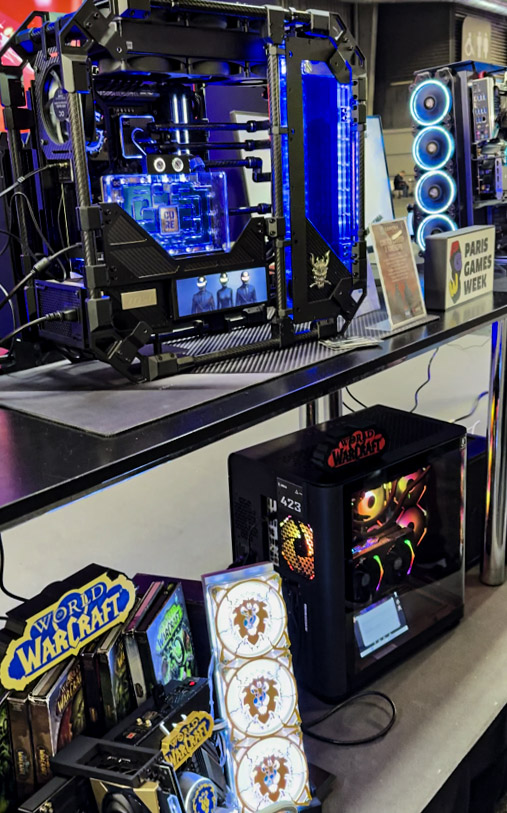
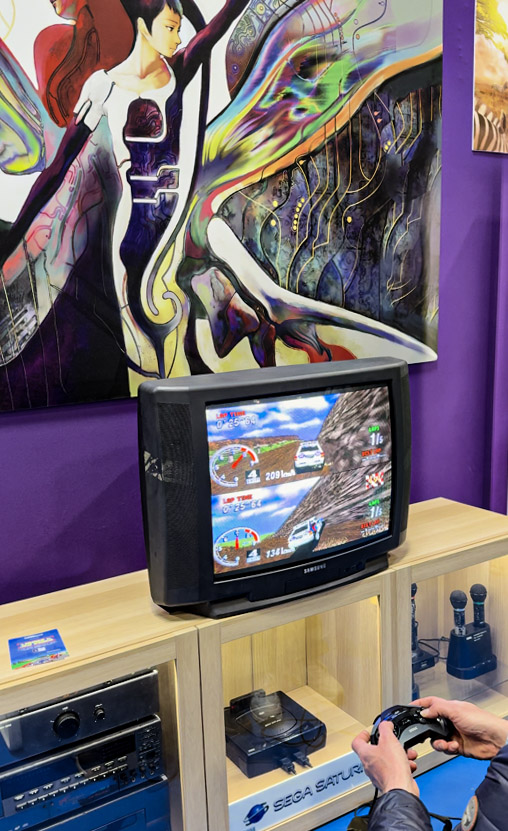
Where AI Fits Into Game Development
Another recurring topic we discussed throughout the event was the use of AI in game development. During dedicated sessions and casual conversations at demo stations, we exchanged perspectives with teams exploring AI for different parts of production. Some were experimenting with automation to accelerate internal workflows or generate variations of assets. Others shared concerns about preserving creative control and ensuring that gameplay decisions remain intentional.
In these discussions, we focused on how AI intersects with the testing process. We talked about the risks of relying on AI-generated content without validation, the importance of verifying gameplay logic, and where human review remains irreplaceable. For many teams, it was helpful to separate two ideas: AI can speed up production, but only structured QA confirms that the result performs as intended.
Looking Forward
Paris Games Week demonstrated how strongly communication influences decision-making in the game development process. The industry continues to evolve — new collaboration formats with publishers appear, AI tools reshape production pipelines, and structured QA gains even more importance as a part of the release strategy. For teams working on mobile or PC titles, professional testing brings predictability to planning, stability to development, and confidence to every stage before launch. Whether a studio is preparing a demo, entering conversations with a publisher, or moving toward a full release, quality assurance becomes a strategic element that protects both creative vision and player experience.
Want to discuss how QA can support your game development? Get in touch[2] — we are always open to conversations about testing strategies and project needs.Follow us on LinkedIn[3] and don’t miss updates on upcoming events, industry insights, and our next Game Digest release.
 [4]
[4]Learn more from QATestLab
Related Posts:
- Pavlina Svarychevska: https://go.qatestlab.com/3WQJFRh
- Get in touch: https://go.qatestlab.com/4oKQcJz
- LinkedIn: https://go.qatestlab.com/49V0phF
- [Image]: https://go.qatestlab.com/49V0phF
- Devcom + Gamescom 2025: AI vs Humans in Game Development: https://blog.qatestlab.com/2025/09/05/devcom-gamescom-2025-ai-vs-humans-in-game-development/
- How Compliance Testing Powers Game Releases: https://blog.qatestlab.com/2025/05/22/how-compliance-testing-powers-game-releases/
- E-show 2025: The Rise of AI and Automation in E-commerce: https://blog.qatestlab.com/2025/04/22/e-show-2025-the-rise-of-ai-and-automation-in-e-commerce/
Source URL: https://blog.qatestlab.com/2025/11/17/key-qa-game-testing-takeaways-from-paris-games-week-2025/

